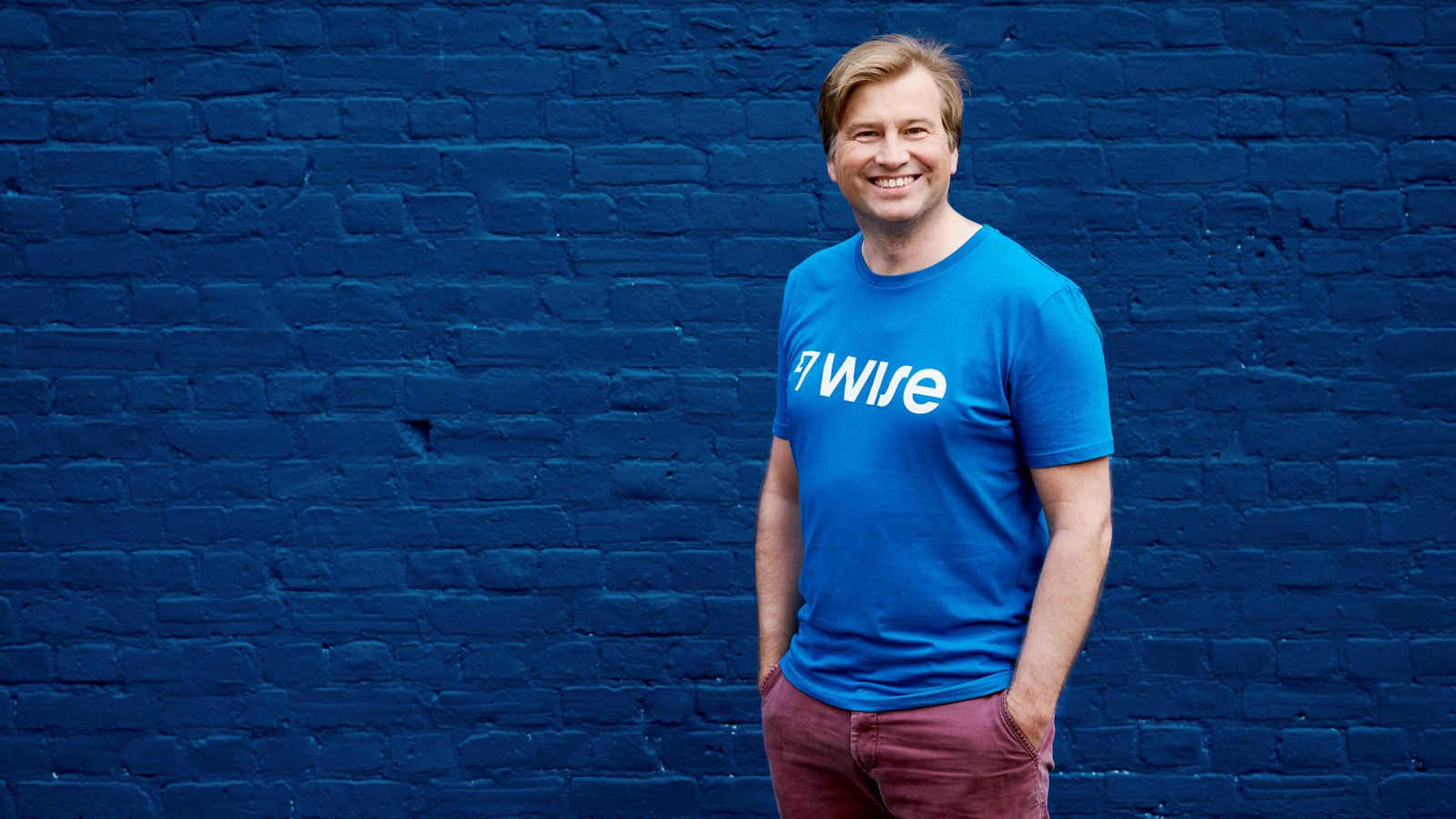Wise, the payments group which ranks among Britain’s most valuable fintech companies, is considering a direct listing on the London stock market that would bypass a more conventional initial public offering (IPO) process.
Sky News has learnt that Wise – which until last month was called TransferWise – is in talks with its advisers about going public this year without raising money from the sale of new shares.
A direct listing, or introduction as it is often called in the London market, remains comparatively rare for capital-hungry technology companies which routinely use IPOs as a way of strengthening their balance sheets.
If Wise chooses to eschew an IPO in favour of an introduction or direct listing, it would enable the company to shorten the flotation process and sharply reduce the fees paid to investment bankers and other advisers.
It would be another bold step for one of the UK’s most prominent technology businesses, which has grown from a standing start to boasting more than nine million customers and £4.5bn in monthly cross-border transaction volumes in less than a decade.
Wise has appointed Goldman Sachs and Morgan Stanley to work on taking it public, and a source close to the company said it had to make final decisions about the timing or structure of a listing.
Given current tech valuations, Wise is certain to be worth well in excess of the $5bn valuation at which it sold a stake last summer.
The company, which was founded by Taavet Hinrikus and Kristo Kaarmann, has become one of the prime targets of chancellor Rishi Sunak for a London flotation following a review of the City’s attractiveness as a listings destination for fast-growing companies.
Alongside Deliveroo, which will begin trading on the London Stock Exchange at the end of the month, and Revolut, Wise was among the companies which has held talks with the prime minister about its IPO ambitions in recent months.
Wise is seen as a particularly important company to persuade to float in London because of its rapid international growth.
The business employs 2200 people and has issued a total of more than 1m debit cards.
It recently strengthened its board with the appointment of the former Trainline chief executive Claire Gilmartin as a non-executive director.
Last July, D1 Capital Partners, which has placed substantial bets on some of the world’s biggest tech companies bought a $200m stake from other TransferWise investors.
That deal came in the wake of Wise securing a licence from the Financial Conduct Authority to offer investment products, a move that it says will enable customers’ cash balances to earn a more attractive return.
It has, however, no plans to become a fully-fledged bank that would – in the UK – compete with the likes of Monzo, Revolut or Starling.
Mr Hinrikus and Mr Kaarmann, who were born in Estonia, set the company up amid frustration about the cost of sending money overseas.
A flotation would make them both paper billionaires if estimates of the size of their shareholdings in TransferWise – they are thought to own roughly 40% between them – are correct.
Long-standing Wise shareholders include Sir Richard Branson, and IVP, a Silicon Valley fund which has backed Snapchat parent Snap and Twitter.
The company became a “unicorn” – a tech start-up worth at least $1bn – in 2015, and is more richly valued than other British fintech champions such as Oaknorth, the digital bank, which has raised hundreds of millions of pounds from SoftBank’s Vision Fund.
Wise has launched a string of products in recent years, including a borderless account enabling people to move money between dozens of currencies.
A spokeswoman for Wise declined to comment.






















